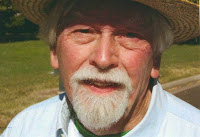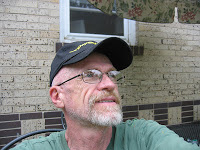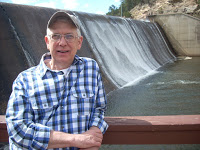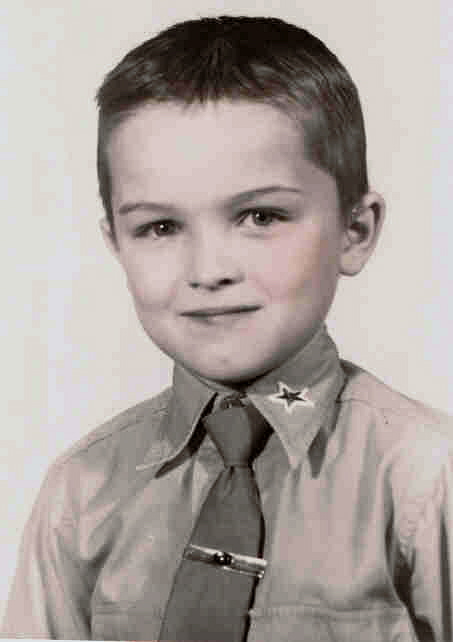I’m just sitting here gazing blankly at an equally blank page. I can’t seem to get started with this one. The basic problem is, like all of you I try to relate the topic of the week to some personal history, and I have none regarding evil. I can’t say I have ever met, or even had a passing remote acquaintance with, anyone I could ever see as evil.
Sure, I know of people who are frequently described as evil – Hitler, Stalin, Lenin, Osama Bin Laden, Charles Manson, Kim Il-sung and now Kim Jong-Il, Saddam Hussein; on and on and on. I have on not so rare occasions called The Tangerine Tyrant, and all who sail with him, evil. But I do not know any of them personally. Neither, come to that, do I want to. I must have been touched, at least indirectly, by Hitler, but I was too young to connect the dots.
And, just as I write this, it occurs to me that evil, and/or the direct results of it, seem to be creeping ever closer. With madmen on both sides of the Pacific, some kind of horrific confrontation between The U.S. and North Korea looms ever larger. Meanwhile, our country drifts rudderless on international waters with no-one at the helm. Our military, overburdened with the weight of international policy, now abdicated by Trump, in addition to traditional military decisions, flounders. While here at home the evildoers threaten ordinary hard-working law-abiding citizens – the vast majority of us, in fact – with cruel and unusual punishments: worsening working conditions, decreasing environmental protections leading, quite probably, to increased sickness at a time when they are taking away our healthcare. Utter madness. Or evil.
I suspect they are frequently entwined.
And does it matter? It is what these people we choose to call evil do which is evil. Whether the perpetrators are evil themselves, or just crazy, or have a belief system very different from our own, is not important; at least, not unless I need, for my own satisfaction, to judge them. In that case, what it is which causes them to do things which I judge to be evil might be important. I might be robbed of my righteous anger, or seething hatred, of the Orange Ogre if I had to accept that he is mentally ill, or was severely traumatized as a child. Personally, I have no intention of going there. I know, from long experience of trying, that I am incapable of getting inside the heads of those who hold attitudes and beliefs very different from mine. I no longer try. For whatever reason, they are what they are. I cannot change them. All I can do is fight back, not against the person but against the evil that they do. As Edmund Burke so famously said, all it takes for evil to triumph is for the good to do nothing.
My second responsibility is to myself; my own sanity. I must not allow anger to take over. It will destroy me. It’s a completely negative emotion with no positive outcome. Buddha said many wise things about anger, as he did about so many things.
You will not be punished for your anger, he says, but by your anger.
He also says,
Holding onto anger is like grasping a hot coal with the intent of throwing it at someone else; you are the one who gets burned.
Someone – other than Buddha but apparently anonymous, maintained,
Holding onto anger is like drinking poison and expecting the other person to die.
Evil, alas with greater odds than the peace which passes all understanding, will probably be with us and remain with us always. If I fight it every way I can while keeping myself free of the clutches of anger, I will say I have done my job. And, seeing that I have fallen once more into quotations, as I so often do to save further effort of original thought, I will try to keep Mahatma Gandhi’s philosophy in mind –
When I despair, I remember that all through history the way of truth and love have always won. There have been tyrants and murderers, and for a time, they can seem invincible, but in the end, they always fall. Think of it–always.
© June 2017
About the Author
I was born and raised in England. After graduation from college there, I moved to the U.S. and, having discovered Colorado, never left. I have lived in the Denver-Boulder area since 1965, working for 30 years at IBM. I married, raised four stepchildren, then got divorced after finally, in my forties, accepting myself as a lesbian. I have been with my wonderful partner Betsy for thirty years. We have been married since 2013.




